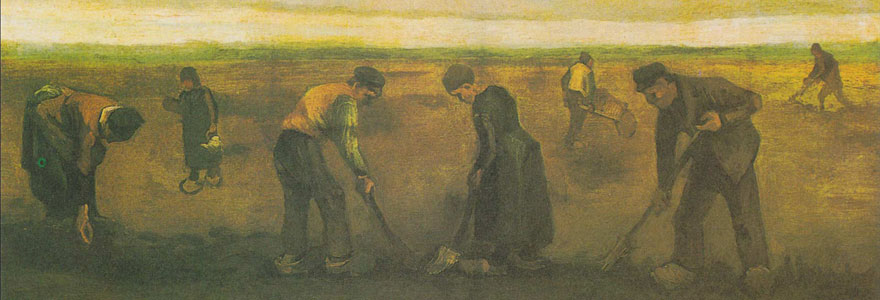News and Updates
Contact
Faculty of Social Science
Social Science Centre
Room 9438
Western University
T. 519-661-2053
F. 519-661-3868
E. social-science@uwo.ca
Busy mothers breastfed less in 19th century Netherlands: study
April 14, 2022
Peasants planting potatoes (1884) by Vincent van Gogh (Public domain)
A new study from the Netherlands has revealed breastfeeding infants may not have been standard practice among mothers in the 1800s, as common perception would suggest.
Led by Western biological anthropologist Andrea L. Waters-Rist, the study found unusually low rates of breast-fed infants at a 19th century rural Dutch village, likely because the mothers then were busy working.
The findings were published in the journal PLOS ONE.
Artificially feeding infants, as opposed to breastfeeding, is considered a fairly modern practice, much rarer before the advent of commercially available alternatives to breast milk. However, studies of past populations in Europe have found that breastfeeding practices can vary significantly with regional cultural variation.
“This study shows that in the past, as with the present, many factors influenced how a mother decided to feed her baby,” said Waters-Rist, an anthropology professor and expert in human osteoarchaeology.
Read the full story by Jeff Renaud at Western News

